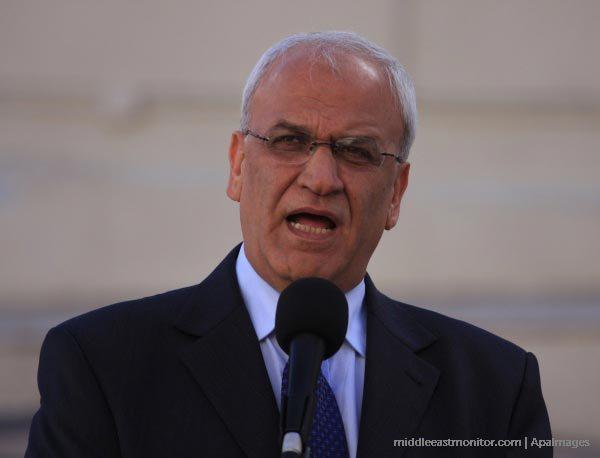Calls to depoliticise humanitarian aid threaten Palestinians’ political struggle

With the UN Relief and Works Agency for Palestine Refugees (UNRWA) facing a financial deficit of $150 million, PLO Secretary General Saeb Erekat is calling upon the UN Secretary General to hasten the investigations into the allegations of corruption and misconduct at the agency.
Now that the Netherlands, Belgium and Switzerland have announced their decision to suspend financial aid to UNRWA following the UN report, Palestinian refugees will likely face additional deprivation of essential basic needs. Donors have so far reacted to the report in a manner that places the organisation in the spotlight and for the wrong reasons, highlighting all along how UNRWA has taken precedence over the Palestinian refugees who fall under its mandate.
Since its creation in 1949, UNRWA has enjoyed its moments of glorification at the expense of patronising Palestinians. This process did not occur in a vacuum. Donors to UNRWA spelled out their relationship in terms of funding the organisation, in keeping with the international decision not to politicise humanitarian aid. As a result, Palestinian refugees were merely considered the appendage that secures the cycle of UNRWA funding and lack of political accountability. Nevertheless, Erekat is still calling upon donor countries to refrain from “politicising humanitarian assistance to UNRWA.”
In letters to the Swiss, Belgian and Dutch Foreign Ministers, Erekat expounded further: “While you have announced your suspension of assistance to the UNRWA because of the leaked reports, you have not yet announced any accountability measures regarding the continued and systematic Israeli violations of UN resolutions and international law, and you still allow Israeli settlement goods to enter your markets.”
Humanitarian aid is a political activity, regardless of the rhetoric claiming otherwise. Erekat’s pleas will not change this process, but it will put Palestinians at additional disadvantages. Calling for the depoliticisation of humanitarian aid works both ways; it also reduces the space for Palestinian refugees to be perceived as political actors, besides normalising the Zionist colonial violence which created and continues to perpetuate the cycle of Palestinian dispossession.
Donor countries have exploited Palestinian refugees and humanitarian aid to prevent the reclamation of political rights. Erekat is, once again, pleading to entities whose humanitarian agenda has nothing to do with Palestinians per se. Rather, it is the safe means through which countries can still exert their influence and involvement, while refraining from an explicit commitment that allows Palestinian refugees an active role in politicising their situation.
If the ultimate aim of defunding UNRWA is indeed political – to eliminate the whole Palestinian refugee issue — should Erekat not be clamouring for unified political action from Palestinians and for Palestinians?
The current imbalance that calls for depoliticising humanitarian aid can only work against Palestinians, as it has done for decades. If humanitarian aid is merely providing basic necessities rather than prospects for independence, there is political action involved which coerces Palestinian refugees into dependence which silences their political claims. However, if the Palestinian leadership decides to remain embroiled in calls to depoliticise humanitarian aid, it is entrenching its position in promoting the mainstream perception of Palestinians as a humanitarian project, which is contrary to the Palestinian cause and the struggle for political assertion.
Source: Middle East Monitor

WRITE YOUR COMMENT